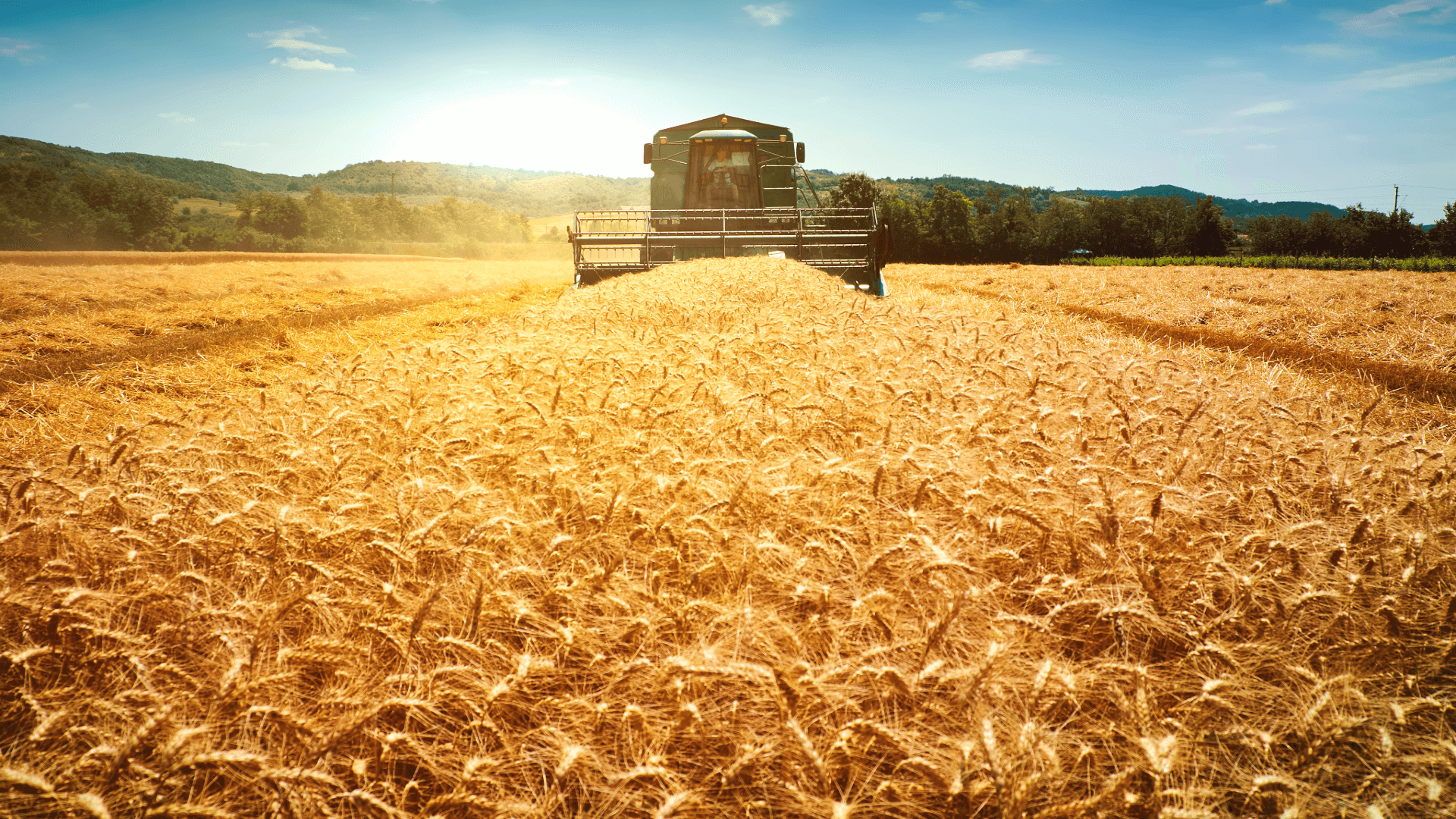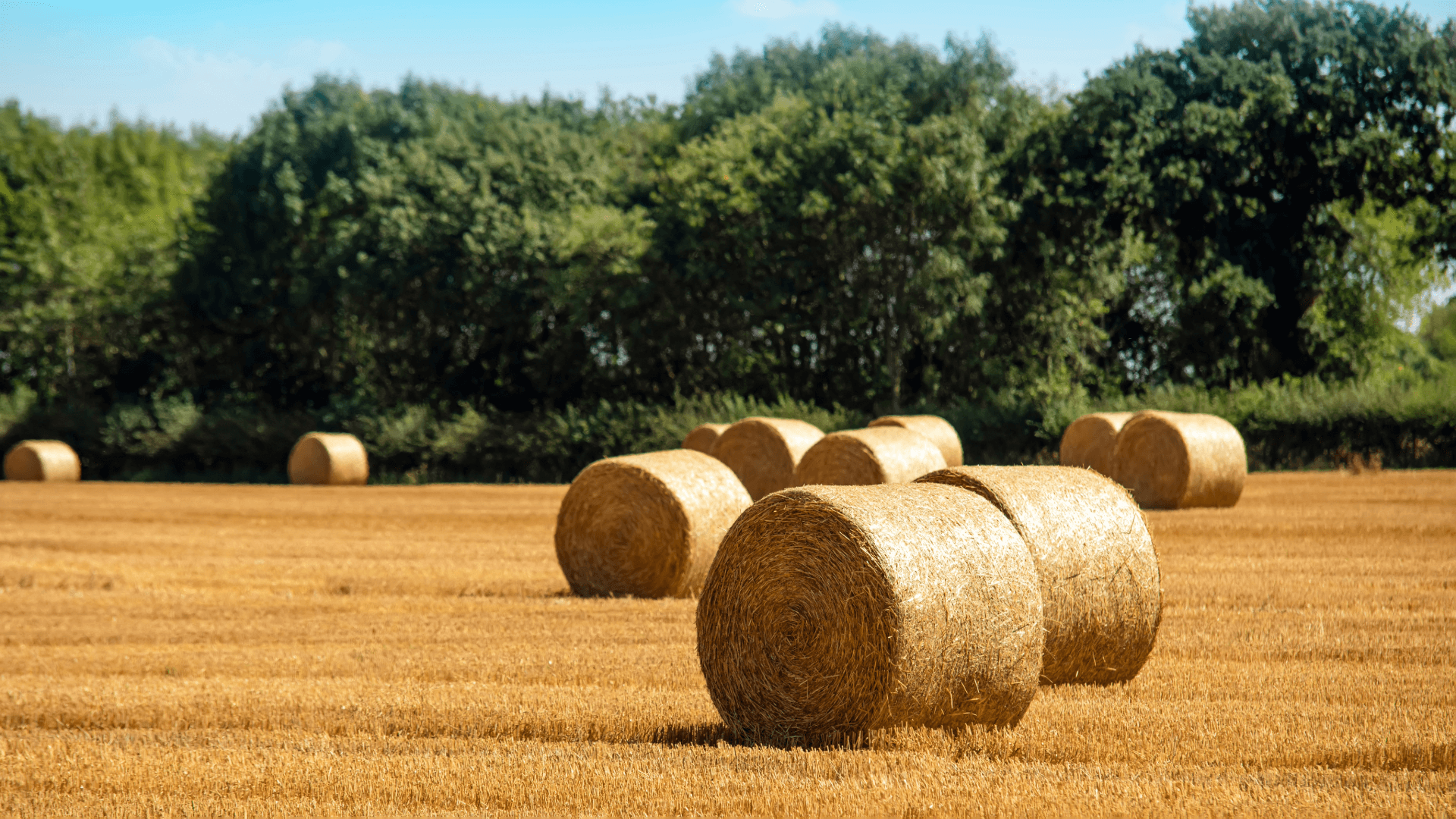The 2024 UK Wheat Harvest Update - 19th August 2024
Posted by Emily on 19th Aug 2024 Reading Time:
Farmers and industry experts closely monitor yields and quality as the UK wheat harvest progresses. This year's crop, though well underway, has been marked by mixed results, reflecting both the challenges of a difficult growing season and some bright spots in certain regions.

By mid-August, the UK's wheat harvest had reached 37% completion, with the East Midlands leading the charge at 65%and the South East following at 48%. Despite the decent pace, some fields remain unfit for harvest, mainly where crops are thinner due to secondary tillering. In Scotland and the North East, the harvest is expected to be at least a week or two away, indicating regional differences in progress.
This year's harvest reflects the total wheat area, including spring wheat, with some winter varieties planted later due to extreme weather conditions. Despite these setbacks, the progress is ahead of last year, when only 5% of winter wheat had been cut by this time.
The 2024 UK wheat harvest story is not just about how much wheat has been harvested but also about the quality and quantity of what's being brought in. On average, yields are down 7% compared to the five-year average, with an overall yield of 7.5 tonnes per hectare (t/ha). Most regions have reported lower yields, except for the East, where yields are closer to the five-year norm.
While yields have been somewhat disappointing, the quality of the wheat harvested so far offers a more encouraging picture. Milling samples show specific weights of 76-77 kg/hl, with some feed wheat samples exceeding 80 kg/hl. Hagberg Falling Numbers, a key measure of baking quality, have shown no issues, which is good news for the milling industry.
However, early reports on protein levels in milling wheat are less positive. Group 1 wheat, typically used for breadmaking, has shown average protein levels between 11.5% and 12%, with only a few samples exceeding 13%. This shortfall is a concern, mainly as protein levels are crucial for producing high-quality flour.

On a global scale, the wheat market has been relatively stable, but significant undercurrents could affect prices. For example, US maize production has been strong, pushing corn futures to lows not seen since 2020. This has put pressure on global wheat markets, with some demand potentially shifting from wheat to maize.
European wheat production is another factor to watch. Heavy rains in France have caused concerns, with the latest forecasts suggesting French wheat production could drop to levels not seen since the 1980s. This has led to speculation that global wheat supplies might tighten, potentially supporting prices despite the challenges in the UK.
As the UK harvest continues, attention will turn to the wheat planted later in the season, which has yet to be harvested. The results from these fields will be crucial in determining the overall success of the 2024 harvest. So far, the picture is mixed: while yields are down, the quality in many regions remains high, offering some consolation to farmers and the industry.
As global markets continue to navigate various pressures, including low maize prices and uncertain European wheat production, the full impact on UK wheat prices remains to be seen. Farmers, millers, and traders alike will closely monitor how these factors play out in the coming weeks.

